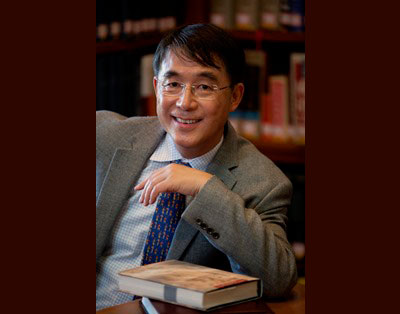Take 5: Liang Neng on Legend

Legend Holdings, which holds the largest stake in PC maker Lenovo Group, is looking to the Hong Kong IPO market to raise as much as $1.96 billion. It could be the third-largest IPO in the city this year. As Legend prepares for its IPO, Prof Liang Neng fills us in on what makes the Chinese company, and its chairman Liu Chuanzhi, such an enigma. Prof. Liang is Director of Case Development Centre at CEIBS and wrote a case study on Legend in December 2014.
1: Why is Liu Chuanzhi important in the history of the development of the Chinese economy?
LN: Entrepreneurs make things happen and academics theorize how things happen. Neither is easy. It’s even more difficult to do both, and very rare to find someone who is able to do both well. Liu is just such a "reflective entrepreneur". Not only did he establish Legend and lead it successfully for 31 years, but he has also developed a highly influential theory of how to lead Chinese firms. His model of "build a strong top team, focus on long term strategy, and nurture a capable and dedicated workforce" has been widely accepted by other Chinese entrepreneurs. Henry Ford is important in history because he developed a new way of manufacturing. Liu is important because he has shown Chinese entrepreneurs how to lead in China's transitional economy.
2: Is it right to call him the godfather of China's entrepreneurial class?
LN: Liu does not want others to see him as a godfather, he has said that repeatedly. He is very modest about his own role in history. But he commands tremendous respect in China, for two reasons. The first is his ability to learn. The Chinese business environment is turbulent and many once-successful entrepreneurs have fallen aside. Yet Liu has stayed ahead of the game for the last thirty years. When Liu speaks, people listen. More important than his wisdom is his moral authority. He has always put the collective good ahead of his personal interest. He only took 3.4% equity of Legend holding, far less than most other founding entrepreneurs. A credible source told me that Liu initially proposed to take even less than 3.4%. It is only because of the urging of his subordinates, who thought he should take a much larger share, that Liu agreed to take 3.4%.
3: What innovative companies or business leaders has he helped nurture?
LN: In addition to Zhao Linhuan of Hony Capital, Liu has nurtured Zhu Linan (Legend’s CEO), Chen Shaopeng (Legend agriculture), Chen Hao (Legend Capital), Yang Yuanqing and Liu Jun at Lenovo, among others.
4: Is Legend a state-owned enterprise? A 'state-related entity'? Or is it a private-sector firm, despite the involvement of CASS?
LN: One thing that’s difficult for outsiders to understand is that Chinese is a paradox. Simple labels such as ‘state-owned’ or ‘private-sector’ cannot adequately explain firm behavior. Legend has a mixed ownership. Its largest shareholder is state-owned (CASS), but it controls only 36% of the equity. The rest is in private hands. It really behaves very much like a private firm in the market.
5: Why has Legend remained private for so many years after Lenovo went public, and is only now doing its IPO?
LN: I can see two reasons. Ownership reform (or what is called privatization in the West) is complicated. Liu started to make preparations soon after Legend was established. But it takes a lot of time to persuade all stakeholders and authorities involved. Secondly, it takes time to build strong businesses.













